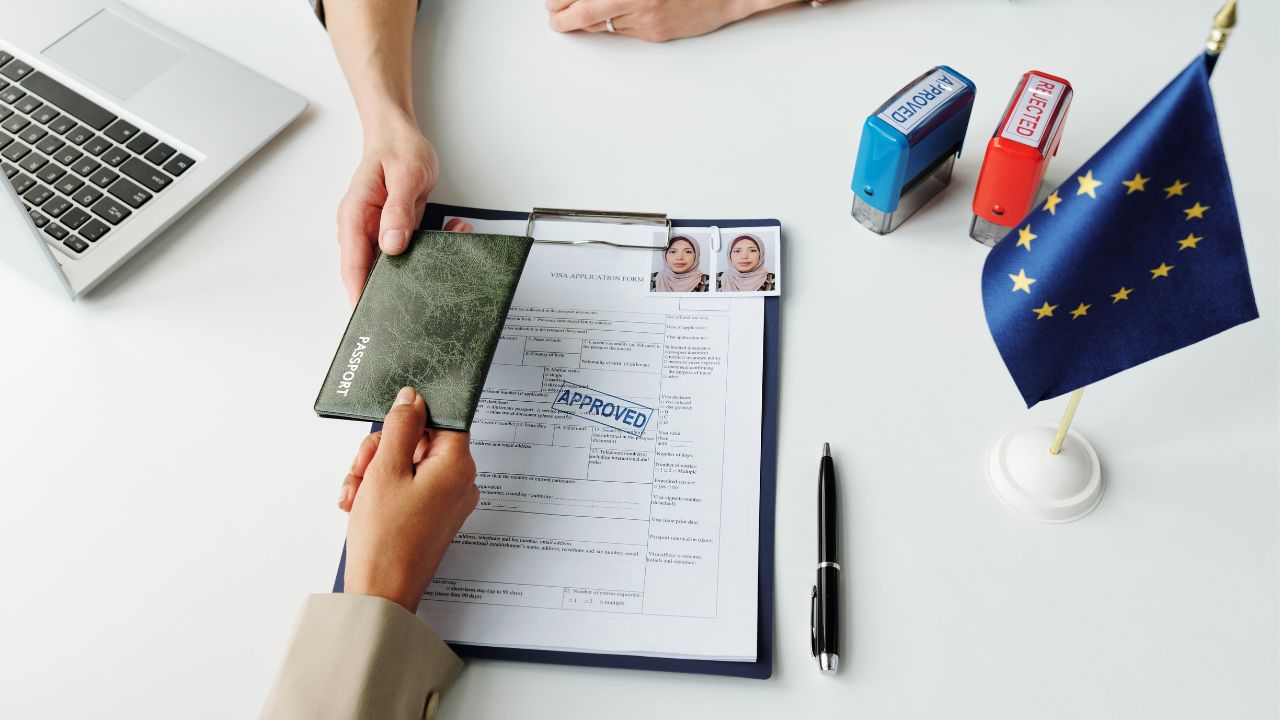
Applying for a work visa can be a complex and stressful process. Many applicants assume that meeting the basic requirements guarantees approval, but the reality is far different. In fact, a staggering 80% of work visa applications face rejection. Understanding the reasons behind these denials is crucial to increasing your chances of approval. In this guide, we will explore the top reasons work visas get rejected and provide practical solutions to avoid these pitfalls.
1. Incomplete or Incorrect Documentation
One of the most common reasons for work visa denials is incomplete or incorrect paperwork. Even minor mistakes, such as missing signatures, incorrect dates, or typos, can lead to an automatic rejection.
How to Fix It:
- Carefully review all required documents before submission.
- Double-check for errors and inconsistencies.
- Seek professional help from an immigration expert or attorney to ensure accuracy.
- Keep copies of all documents for reference.
2. Insufficient Proof of Employment
Visa officers require strong evidence that the applicant has a legitimate job offer from a recognized employer. If the provided proof is weak or unverified, the application may be denied.
How to Fix It:
- Ensure that your job offer letter includes clear details about the role, salary, and company information.
- Provide additional supporting documents, such as an employment contract, company registration proof, and tax filings.
- Ask your employer to verify the job offer through official channels.
3. Lack of Relevant Qualifications and Experience
If an applicant does not have the necessary qualifications or work experience required for the job, their visa application may be rejected. Authorities want to ensure that foreign workers meet job requirements.
How to Fix It:
- Ensure that your qualifications align with the job’s requirements.
- Submit all relevant educational and work experience certificates.
- If required, have your qualifications evaluated by a recognized accreditation body.
4. Failure to Meet Financial Requirements
Some work visas require applicants to prove they have sufficient financial resources to support themselves. Failure to meet these financial requirements can result in rejection.
How to Fix It:
- Provide clear proof of financial stability, such as bank statements, salary slips, and tax returns.
- Ensure your sponsor or employer provides sufficient financial backing if required.
- Double-check financial thresholds for the specific visa category you are applying for.
5. Issues with Employer Sponsorship
If the sponsoring employer fails to meet certain legal and financial criteria, the work visa may be denied. Governments often scrutinize employers to prevent fraudulent job offers.
How to Fix It:
- Verify that your employer is legally registered and meets all visa sponsorship requirements.
- Ensure your employer provides all necessary documents, such as a sponsorship license or proof of business operations.
- If necessary, work with an immigration lawyer to address any sponsorship concerns.
6. Inadequate Justification for Job Necessity
Visa authorities often require proof that the position cannot be filled by a local worker. If the application does not convincingly justify the need for a foreign worker, it may be rejected.
How to Fix It:
- Provide labor market evidence showing the shortage of local candidates for your role.
- Include detailed explanations in your application to justify why your skills are essential.
- Ask your employer to submit additional documents supporting the necessity of hiring a foreign worker.
7. Criminal Record or Security Concerns
Applicants with a criminal record or past immigration violations face higher rejection rates. Even minor offenses can be red flags for visa officers.
How to Fix It:
- Be transparent about your past criminal record and provide necessary documentation.
- If applicable, submit proof of rehabilitation or character references.
- Consult with an immigration attorney if you have concerns about past legal issues.
8. Failure to Attend Interviews or Biometrics Appointments
Missing an immigration interview or biometrics appointment can lead to automatic rejection. These steps are crucial for verifying an applicant’s identity and eligibility.
How to Fix It:
- Keep track of all interview and appointment dates.
- Arrive on time and be well-prepared with all required documents.
- Reschedule in advance if you cannot attend due to an emergency.
9. Poorly Prepared Visa Application
A poorly prepared visa application with vague responses or missing details often results in rejection. Authorities look for well-organized and complete applications.
How to Fix It:
- Ensure that all forms are filled out completely and accurately.
- Provide detailed and clear answers to all questions.
- Have an immigration consultant review your application before submission.
10. Previous Visa Denials or Overstays
If an applicant has a history of visa denials or has previously overstayed in another country, their chances of approval significantly decrease.
How to Fix It:
- Disclose any past visa denials honestly and provide explanations.
- Show evidence that you have adhered to immigration laws since any past issues.
- Demonstrate strong ties to your home country to reduce concerns about overstaying.
Also Read: Green Card And Work Visa: What Lawyers Say You MUST Know
Conclusion
Work visa rejections can be discouraging, but understanding the common reasons behind them can help you take proactive steps to improve your chances. By ensuring proper documentation, meeting job and financial requirements, and seeking professional guidance when needed, you can avoid common pitfalls and secure your work visa successfully. If you are facing challenges with your visa application, consider consulting with an immigration expert to enhance your chances of approval.